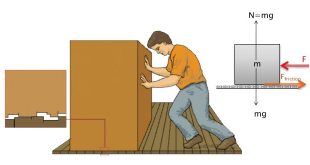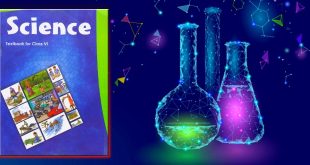Weather, Climate and Adaptations of Animals to Climate 7th Class NCERT CBSE Science Chapter 07 Question: During rainy season, what do we use to protect ourselves from rainwater? Answer: We use umbrella or raincoat to protect ourselves from rainwater during rainy season. Question: A fish dies when taken out of water, whereas …
Read More »Physical and Chemical Changes: 7th CBSE Science Ch 06
Physical and Chemical Changes 7th Class NCERT CBSE Science Chapter 06 Question: What kind of change is shown by tearing of paper? Answer: Tearing of paper is a physical change although, it cannot be reversed. Question: Melting of wax is a change where a solid changes to liquid state. Give one more …
Read More »Acids Bases and Salts: 7th NCERT CBSE Science Ch 05
Acids Bases and Salts 7th Class NCERT CBSE Science Chapter 05 Question: What is the test for acids and bases using litmus paper? Answer: Acids turn blue litmus paper red while bases turn red litmus paper blue. Question: What name is given to those substances which do not change the colour of …
Read More »Heat: 7th Class NCERT CBSE Science Chapter 04
Heat NCERT 7th Class CBSE Science Chapter 04 Question: In a mercury thermometer, the level of mercury rises when its bulb comes in contact with a hot object. What is the reason for this rise in the level of mercury? Answer: As the temperature increases, then expansion in mercury takes place which …
Read More »Fibre to Fabric: 7th Class NCERT CBSE Science Chapter 03
Fibre to Fabric NCERT 7th Class CBSE Science Chapter 03 Question: Name the sources of obtaining fibres. Answer: The sources of obtaining fibres are plants and animals. Question: Name some wool yielding animals. Answer: Wool yielding animals are sheep, yak, llama, alpaca, angora goat, angora rabbit and camel. Question: In which part …
Read More »Nutrition in Animals: 7th Class NCERT CBSE Science Ch 02
Nutrition in Animals NCERT 7th Class CBSE Science Chapter 02 Question: What is the total number of teeth in an adult human? Answer: In an adult human, there are total 32 teeth. Nutrition in Animals NCERT – Question: Name the parts of the alimentary canal where water gets absorbed from undigested …
Read More »Nutrition in Plants: 7th Class NCERT CBSE Science Ch 01
Nutrition in Plants 7th Class NCERT CBSE Science Chapter 01 Question: Why do organisms need to take food? Answer: All living organisms require food to survive. It gives them energy to perform various activities. All activities such as playing, running, walking, studying etc. require energy. The various components present in …
Read More »NCERT 8th Class CBSE Science: Friction
Friction: 8th Class NCERT CBSE Science Chapter 12 Question: What is friction? Answer: Friction is a force that slows down moving objects or prevents stationary objects from moving. Question: On what principle do ball bearings work? Answer: Ball bearing works on the principle of rolling friction. Ball bearing contains steel balls …
Read More »Garbage In Garbage Out: 6th CBSE NCERT Science Ch 16
Garbage In Garbage Out – 6th Class NCERT CBSE Science Chapter 16 Question: Distinguish between bio-degradable and non bio-degradable. Answer: Biodegradable waste: Waste that will decay and mix with soil. Microorganisms can convert this waste into simpler from. Peels, meat, leaves are the example. Non biodegradable waste: Waste that will not decay …
Read More »Air Around Us: 6th Class CBSE NCERT Science Chapter 15
Air Around Us – 6th Class NCERT CBSE Science Chapter 15 Question: What is the composition of air? or Write a short note on the composition of air. Answer: Air is mixture of nitrogen, oxygen, carbon dioxide, water vapour and a few other gases. Some dust particles may also be present in it. …
Read More » Class Notes NCERT Solutions for CBSE Students
Class Notes NCERT Solutions for CBSE Students


